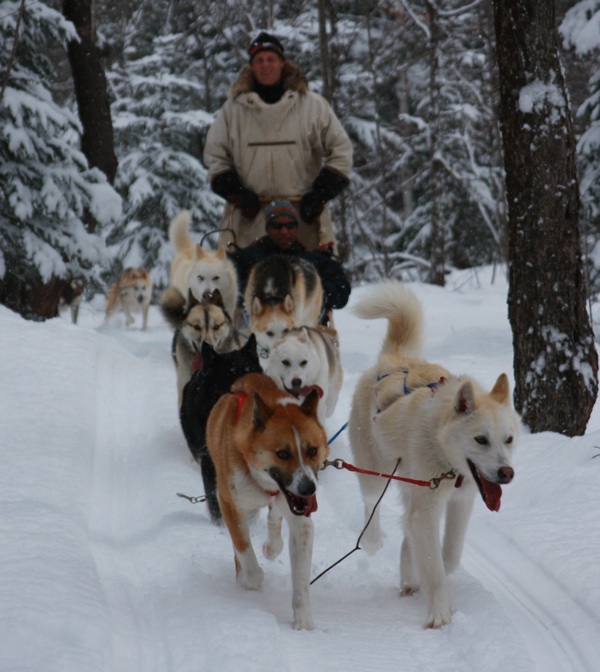Dog Sledding the U.P. – The Joy Trip Project

Now that winter is here it’s a good opportunity to discover that despite the cold there were many opportunities to enjoy your time outside. Hopefully you get out to ski or ice climb or skate or make angles in the snow. By far one of the coolest moments I had last winter was the better part of a morning I spent riding through the woods of the Upper Peninsula of Michigan on a dog sled. I’m not sure what I expected but I can tell you that it was nothing like anything I could have imagined.
It was one of those days in winter when the overcast sky ironically blocks out the sun’s rays but still traps the ambient heat of the air. There was no wind. So the temperature was a pure 20 degrees. Everything, the sky, the leafless trees, the ground packed in ice and snow seemed cast in monochromatic shades of black, gray and white. Most every aspect of the landscape was utterly still.
But piercing the silence came the sound of barking dogs. Not the least bit disturbing, the noise the dogs made seemed a natural part of this particular environment, like a pack of wolves answer the call the of wild.
Each of the dogs yipped and yelped their excitement because as I came to discover pulling a sled in flashes of fangs, claws and muscle along these frozen trails is exactly what they were born to do. I would find that riding a dog sled is as thrilling and natural an experience as you can have.




You must be logged in to post a comment.